
Catalog Advanced Search
-
Contains 1 Component(s) Includes a Live Web Event on 11/15/2024 at 1:00 PM (EST)
AIC and our Equity & Inclusion Committee are hosting a training on cultural equity for members
2024 AIC WORKSHOP AND DISCUSSION SERIES:Closing Conservation’s Narrative Gap: Sharing Stories of Insight, Change and Impact
Friday, November 15, 2024
Time: 10 AM – 2 PM PST/12 PM -2 PM CST/1 PM – 3 PM EST
Summary
The strong societal impact of storytelling is evident by the fact that narratives permeate every aspect of the shared human experience, from myth and legend to cinema, news, everyday conversations, and even conservation. Between 2020 and 2022, our field invested a lot of time sharing stories and statements about persistent barriers and commitments to advancing greater diversity, equity and inclusion. Since then, priorities have shifted.
If impact and change happen at the personal, organizational and systemic levels, then how are we continuing to share our stories of advancing conservation’s importance in our field, while weaving in our commitment to advancing greater equity and inclusion?
Storytelling is one of the most powerful tools that we have at our disposal. This 2-hour interactive workshop will explore approaches and elements of effective storytelling that weaves understanding, valuing and engagement in conservation together with a sustained commitment to greater diversity, equity and inclusion.
Our Time Together Will Touch Upon the Following:
- Overview of AIC’s Commitment to Advancing Greater Diversity, Equity and Inclusion
- Leadership presents on AIC’s steadfastness of this work
- Storytelling Approaches
- A look behind the conservation curtain
- Bringing conservation to life through context, emotional connection, understanding and engagement (including donor engagement)
- You gotta see it to believe it! Sharing the work and pathways careers in conservation.
- Centering the Relational: Story Telling Essentials
- Shared Language: Words can heal and harm. How are the tools of language and data supporting or limiting us? Can we share the importance of our work and its value in words that mean something to someone outside of our field?
- Working through Conflict/Appreciating Our Magic: Every good story has a protagonist, antagonist, conflict and resolution of sorts. Don’t be afraid of the human element in the work and the magic that four archetypes in conflict can bring in creating deeper, more sustainable and impactful change.
- What do Healthy Partnerships Look Like? We partner with clients, co-workers, communities and other institutions. How do we center the communities we seek to build relationships with? Every point of engagement is an opportunity to build or break trust.
PDFs of the presentation and additional resources will be shared post workshop.
This event is hosted by AIC's Equity & Inclusion Committee and is supported in FULL by members who contributed to the DEIA project sponsorship.
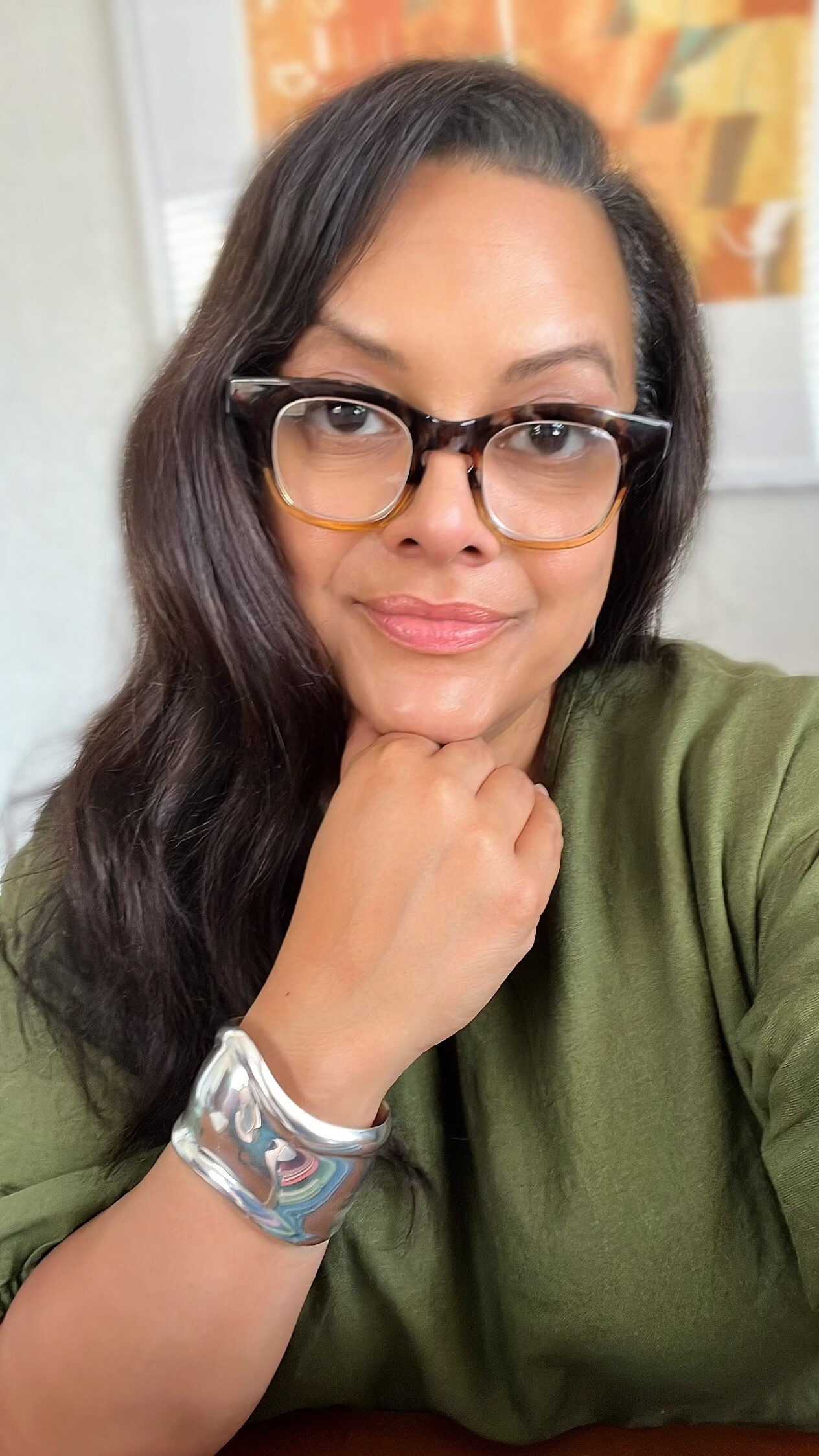
Evonne Gallardo
Senior Vice Program Director
Community Partners
Evonne Gallardo is a Senior Vice Program Director for Community Partners—a Los Angeles-based nonprofit organization committed to an equitable, thriving, and inclusive society. Evonne leads intermediary partnerships that regrant funding for artists and arts and culture organizations working at the intersections of social justice in Los Angeles and Orange Counties. Evonne also consults institutions to advance artists and arts organizations and has held leadership positions in museums, community-based art centers, and artist-led ventures. With over 20 years of hands-on experience, her areas of focus lie in funding and program development, strategic planning, community engagement, and cultural equity and inclusion strategies. Evonne received a B.A. in American History from Columbia University and an M.A. in the Sociology of Art from the New School for Social Research in New York. Evonne serves as Vice Chair of the Board of Directors for the National Association of Latino Arts and Cultures.
-
Register
- Member - Free!
- *Further discounts may apply once you log in.
- More Information
- Overview of AIC’s Commitment to Advancing Greater Diversity, Equity and Inclusion
-
Contains 9 Component(s) Includes Multiple Live Events. The next is on 11/08/2024 at 2:00 PM (EST) Recorded On: 09/13/2024
Connect with your fellow members!
Our Monthly Member Meetup is a series of hour-long monthly events that we’ll host every second Friday at 2pm ET. Topics may cover sustainability, private practice, volunteering, the wiki, emergency planning, introductions to our various committees and groups, and more. Our goal is to offer you a social outlet and way to connect with other members. We welcome suggestions for topics and guest hosts! Send us your ideas at membership@culturalheritage.org. See past recordings at https://learning.culturalherit... and https://learning.culturalherit....
-
Register
- Member - Free!
- More Information
-
Register
-
Contains 1 Component(s)
The AIC Sustainability Committee is excited to announce the eighth in a series of webinars where we chat with conservators and allied professionals who are implementing changes to reduce the energy consumption of their buildings.
The AIC Sustainability Committee is excited to announce the eighth in a series of webinars where we chat with conservators and allied professionals who are implementing changes to reduce the energy consumption of their buildings.
The energy used to heat, cool, de/humidify, and light buildings is the biggest environmental impact of the cultural heritage sector. After decades of regarding one-size-fits-all, non-fluctuating indoor environmental parameters as the gold standard, the field is now questioning the value of this approach. And as the recent extreme weather and the associated risks to cultural heritage continue to remind us, the need for change is urgent.
On Friday October 25th 12:00 - 1:00 ET, join us as we speak with members of the collections care team at the New York Public Library (NYPL): Becky Fifield, Associate Director, Collections Management; Colleen Grant, Senior Collection Manager at the NYPL’s Stephen A. Schwarzman Building; and Deborah Straussman, Head Registrar. They will discuss how they are facilitating reduction of energy use by clarifying preservation goals and fostering active collaboration with colleagues and potential lenders to their exhibitions.
Rebecca Fifield
Senior Manager, Collection Management
New York Public Library
Rebecca Fifield is Senior Manager, Collection Management at The New York Public Library. She has over thirty years of experience working with both large and small library, art, and history collections, including the Metropolitan Museum of Art and the Museum of Fine Arts, Boston. She received an M.A. in Museum Studies from The George Washington University in 1999, where she received a National Endowment for the Humanities fellowship to study collections care administration. A frequent speaker on emergency preparedness and collection care topics, she is the author of "Emergency Management" in Preventive Conservation: Collection Storage. A Professional Associate of AIC, Becky is former Chair of the American Institute for Conservation’s Collection Care Network and former Chair of the Alliance for Response NYC.
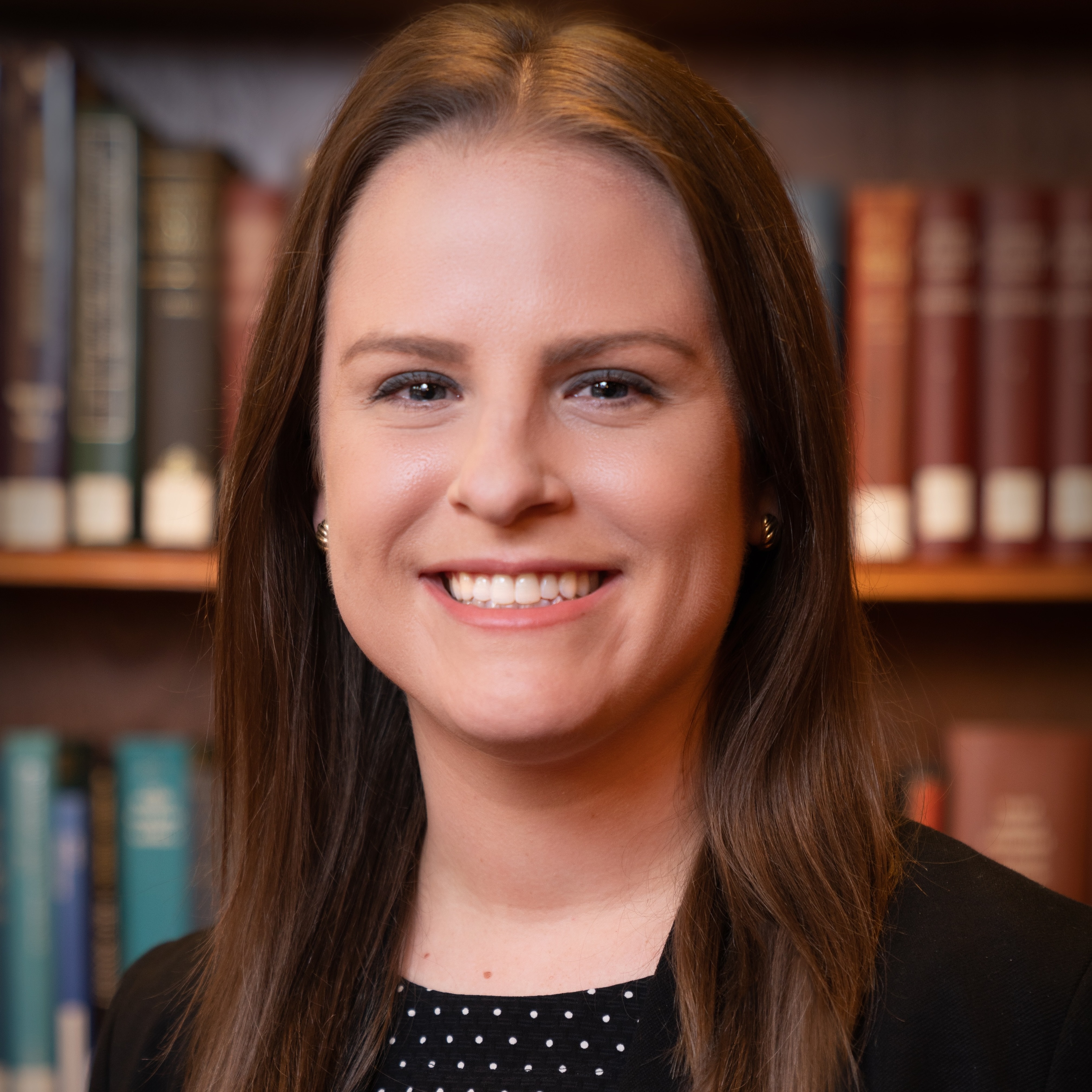
Colleen Grant
Senior Collection Manager at the NYPL’s Stephen A. Schwarzman Building
New York Public Library
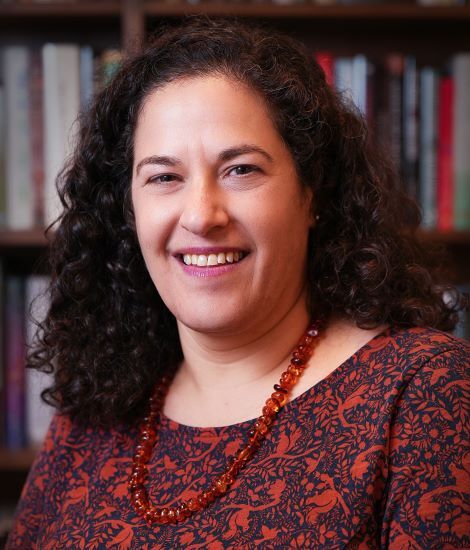
Deborah Straussman
Head Registrar
New York Public LIbrary
Deborah Straussman has worked in the Registrar’s Office at the New York Public Library for more than 16 years. Prior to joining NYPL, Straussman worked at The Museum of Modern Art in the exhibitions department. Straussman spent five years working in television production on true crime documentaries before her interests in art and cultural heritage led her to become a registrar.
-
Register
- Non-member - $20
- Member - Free!
- *Further discounts may apply once you log in.
- More Information
-
Register
-
Contains 1 Component(s)
series of programs designed to provide information supporting our work in private practice
The officers of the Conservators in Private Practice group are pleased to announce the first in a series of programs designed to provide information supporting our work in private practice.
This first program will focus on understanding the language of government contracts and insights into the bidding process for contracts with the National Park Service and Smithsonian Institution. Our speakers will be Angela Campbell, National Park Service and Lauren Horelick, Smithsonian Air and Space Museum.
Additional information about other government agencies who also have a contracting methodology will be reviewed briefly. We also anticipate that some of the insight into bidding will be helpful on the state and local level.
Following the presentations there will be ample time for questions and discussions.
If you cannot attend and would like to send questions in advance, please email Linnaea@theconservatorseasel.com
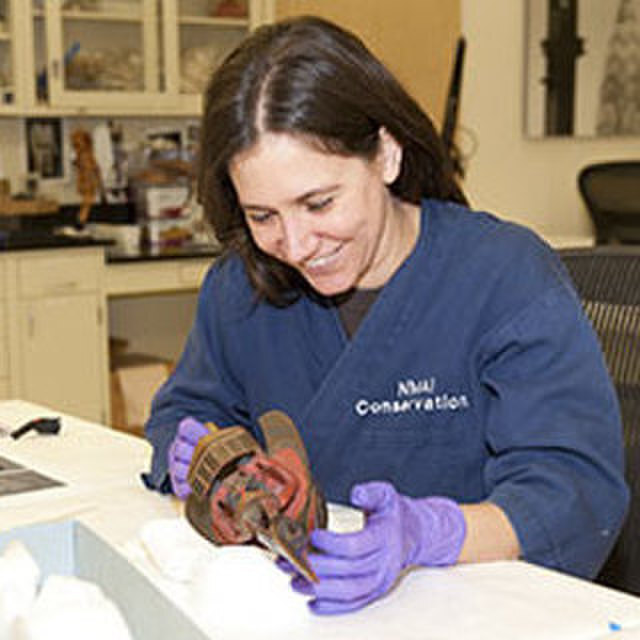
Lauren Horelick
Objects Conservator
National Air and Space Museum
Lauren Anne Horelick has been an objects conservator at NASM since 2012. She has a BFA in Sculpture from the San Francisco Art Institute, a BA in Art Conservation from the University of Delaware, and an MA in archaeological and ethnographic conservation from University of California at Los Angeles (UCLA)/Getty Conservation Master’s program. Lauren completed graduate internships at the Alaska State Museum and the American Museum of Natural History. She also served as the Andrew W. Mellon Postgraduate Fellow in Objects Conservation at Smithsonian, National Museum of the American Indian. Lauren’s research interests include studying the effects of adhesives on cultural materials, diagnostic imaging, and exploring cross-disciplinary adaptive treatment techniques for ephemeral technological materials. Prior to becoming an objects conservator Lauren worked in the field of architectural restoration as a sculptor and mold maker.
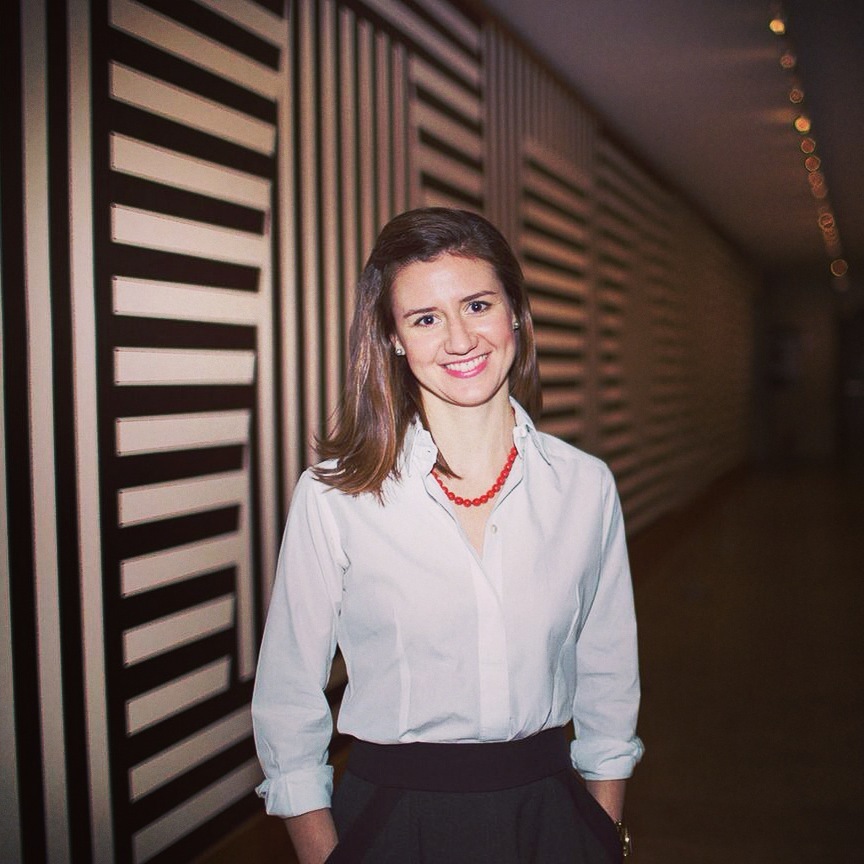
Angela Campbell
Paper Conservator, Project Inspector
NPS Historic Architecture, Conservation, and Engineering Center
Angela Campbell is the Paper Conservator and Project Inspector at the Historic Architecture, Conservation and Engineering Center (HACE) of the National Park Service. She is responsible for the conservation and preservation of works on paper in over 80 historic homes and collections in the northeast region. Angela was previously an Assistant Conservator at the Metropolitan Museum of Art, where she spent seven years working in the Sherman Fairchild Center for Works on Paper and Photograph Conservation. Angela holds an MA degree and Certificate of Advanced Study in Art Conservation from Buffalo State College.
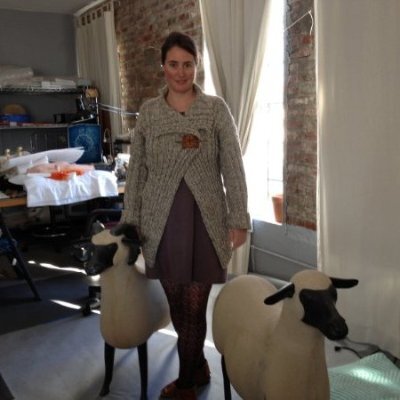
Linnaea Saunders (Moderator)
Conservator of Paintings
The Conservators Easel, LLC
Linnaea E. Saunders is a Conservator of Paintings in private practice in Los Angeles. Following her training at the Courtauld Institute of Art (1999), Linnaea worked for the Cleveland Museum of Art, The Mauritshuis, and the Los Angeles County Museum of Art (LACMA). In 2007, she established her independent conservation studio, The Conservator's Easel, LLC, specializing in the treatment of easel paintings and frames. Linnaea has experience treating European, Latin American, American, and Modern and Contemporary paintings on canvas, wood panel, copper, and paperboard support. She provides services to major institutions, smaller museums and historical societies, galleries, collectors, and private individuals. Linnaea regularly hosts graduate interns in her studio as part of their training.
-
Register
- Non-member - Free!
- Member - Free!
- More Information
-
Register
-
Contains 34 Component(s)
Utilizing multiple teaching tools, including readings, podcasts, videos, and discussions, this course will guide participants through the development process of their Collections Management Policy.
A Collections Management Policy is a core document for any collecting institution that governs the legal and ethical requirements of the institution’s collecting practices and collections care. Writing a policy for the first time or updating a policy can be overwhelming due to the complexities of constantly changing legal and ethical requirements. Utilizing multiple teaching tools, including readings, podcasts, videos, and discussions, this course will guide participants through the development process of their Collections Management Policy. Additionally, this course will draw participant’s attention to the protection provided by a carefully written Collections Management Policy from unlawful or unethical decision making. At the end of the program, participants should feel confident to edit an existing Collections Management Policy or write a new one with a focus on those collections-related law and ethics that impact our ability to care for, use, and manage collections.
This self-study program is presented as a series of recordings of a live course offered in September 2024. Please note that any assignments are designed for enrichment only and will not be reviewed.
Course Outline
Session 1
- Date: September 17, 2024
- Time: 1:00 - 2:00 pm ET
- Topic: The first session of this course will focus on the different ways objects can be acquired and how the title of ownership passes to the museum.
Session 2
- Date: September 19, 2024
- Time: 1:00 - 2:00 pm ET
- Topic: The second session of the course will be diving deeper into special laws and ethics that can impact acquisition methods and quality of title, such as copyright or questionable provenance.
Session 3
- Date: September 24, 2024
- Time: 1:00 - 2:00 pm ET
- Topic: The third session will move on to non-title holding acquisitions, such as loans and temporary custody.
Session 4
- Date: September 26, 2024
- Time: 1:00 - 2:00 pm ET
- Topic: We will conclude the course with the fourth session on how to dispose of, or deaccession, objects no longer wanted by the museum.
*Please note: All meetings will be conducted using Zoom Meeting.
Coordinator/Instructor
Rebecca Kennedy has collaborated with diverse collections and cultural institutions to elevate the preservation and management of collections. Following the completion of an MA in Museum Studies from The George Washington University, Rebecca dedicated eleven years to preservation and collections management at the Smithsonian Institution before founding Curae Collections, LLC in 2018.
Rebecca contributes actively to committees within the American Institute for Conservation (AIC), American Alliance of Museums (AAM), and Association of Registrars and Collections Specialist (ARCS), demonstrating her commitment to bolstering the cultural institutions and their workers. Additionally, she serves as an editor for the Collections Journal and imparts her knowledge as an instructor on Collections Management for the George Washington University. As a peer-reviewed Professional Associate (PA) of AIC, Rebecca garners recognition for her contributions as an allied professional within the conservation community.
Registration Fee:
- $89 USD - Self-Study
Connecting to Collections Care courses are made possible in part by generous support from the Institute of Museum and Library Services.
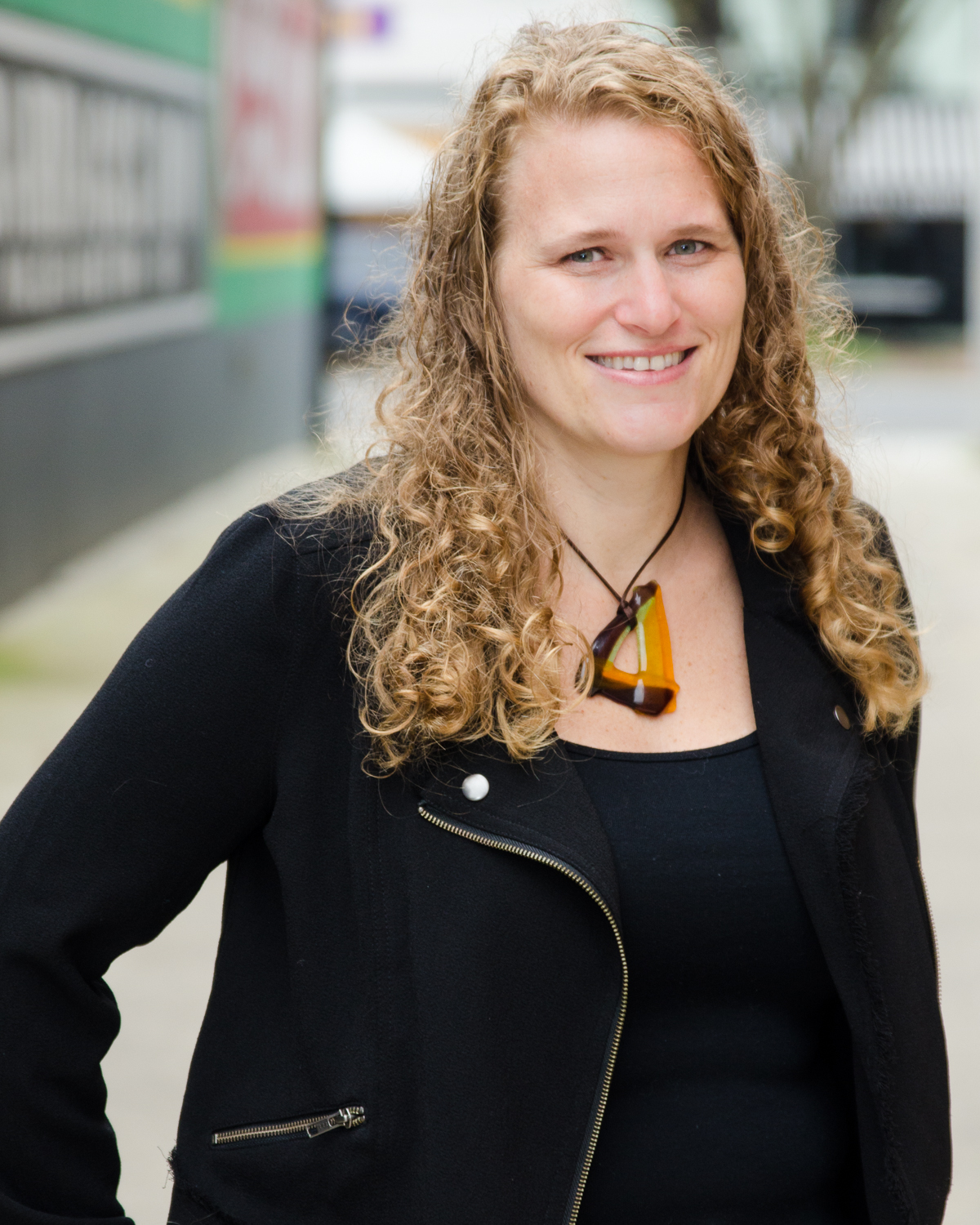
Rebecca Kennedy (Moderator)
Collections Care Specialist at Curae Collections Care, LLC
With nearly 15 years of experience, Rebecca has worked with a variety of collections in storage and on exhibition in diverse media. Her career began as a registrar for an historical society in Florida. After graduating with her MA in Museum Studies from The George Washington University, Kennedy worked in preservation and collections management at the Smithsonian Institution for 11 years. Her projects consisted of rehousing, exhibition installation, offsite storage management, object cataloging, deaccessioning and much more.
In 2016, Kennedy completed a training in First Aid to Cultural Heritage in Times of Crisis (FAC) by the International Centre for the Study of Preservation and Restoration of Cultural Property (ICCROM). This FAC course expanded her impact in helping institutions prepare for and respond to emergencies and disasters. She also served on the inaugural team of the Smithsonian’s Preparedness and Response in Collections Emergency (PRICE) for two years and the steering committee for the DC Alliance for Response. She is a Professional Associate (PA) of the American Institute for Conservation (AIC).
-
Register
- Non-member - Free!
- Member - Free!
- More Information
-
Contains 1 Component(s)
Learn about how you can participate to the fullest this Ask a Conservator Day!
Ask a Conservator Day is an opportunity to spread awareness of our field and showcase the depth of knowledge that conservators hold. In the past we’ve called for participation from conservation professionals across the field, and as we build upon the success of the event, we want to extend the opportunity to be more involved in the lead-up to Ask a Conservator Day 2024 through our ambassador program. Ambassadors help us amplify the message about Ask a Conservator Day throughout the field as well as to their wider networks.
Learn about our ambassador program and how to participate in Ask a Conservator Day and discuss ideas and questions about participating with FAIC Outreach Manager Katelin Lee and our colleagues at Resnicow and Associates.
-
Register
- Non-member - Free!
- Member - Free!
- More Information
-
Register
-
Contains 6 Component(s) Recorded On: 06/13/2024
Learn about new processes and improvements with the AIC Wiki
The Wiki Working Group welcomes AIC Wiki editors and users to an open discussion. Learn about new processes and improvements with the AIC Wiki, as well as technical hurdles we are addressing, then discuss your own experiences and ideas. This will be a quarterly meeting, and will be recorded for those who can't join live.
-
Register
- Non-member - Free!
- Member - Free!
- More Information
-
Register
-
Contains 5 Component(s) Recorded On: 06/04/2024
June 4, 1 p.m. ET via Zoom
Join the board and executive director for a summary of our activities and financials and hear about plans for the future.
-
Register
- Member - Free!
- *Further discounts may apply once you log in.
- More Information
-
Register
-
Contains 14 Component(s)
July 8, 15, 29, 2024, at 1:00-3:00pm ET
Online, July 8, 15, 29, 2024, at 1:00-3:00pm ET
Instructor: Yosi Pozeilov
Coordinator: Cristiana Ginatta
Registration fee: $80 AIC members, $96 non-members (a limited number of free registrations are available for those who need it)This workshop is designed to present the fundamentals of infrared imaging. The first two sessions will cover terminology, equipment, techniques, applications, and processing. The third session will include a review of practice images with additional time for questions and discussion.
Although this workshop is designed to cover knowledge from beginner to a more advanced level, to fully benefit from the information imparted, it is recommended that specific equipment be at hand to practice the concepts that are taught. The image processing software that will be used is Adobe Photoshop and Bridge; the group will be processing RAW images converted to DNGs.
Recommended equipment:
- Modified digital camera with IR capability, either UV-VIS-IR, or IR only
- Band pass IR filters, like the Wratten 87C, Peca 910, or Xnite 1000A
- Lights (radiation sources) rich in IR emission, like Tungsten-Halogen lights, LED IR lights, or unfiltered flash/strobe unit
Interested individuals should apply by June 9 to participate in the workshop. Those who need financial support can request it in the application. Accepted participants are expected to attend all three of the live sessions. The live sessions for the workshop will take place in Zoom and automated captions will be available.
Interested individuals should complete an application by June 9.The application will allow for a more inclusive group of participants who will be using the content directly in their work and disseminate the information amongst their communities. Below are the criteria for review. All interested conservation professionals are encouraged to apply! 30 spaces are available and applicants will be notified by June 17. Accepted participants are expected to attend all three of the live sessions.
Criteria for Review
- Need for the content
- Plan for dissemination of information gained
- The program seeks to support a diverse set of participants and will consider geographic location, place of employment type, profession, and career level
Funding for this program comes from the Foundation for Advancement in Conservation (FAIC) Endowment for Professional Development. The FAIC Endowment for Professional Development, which was created by a grant from The Mellon Foundation and is supported by donations from members of the American Institute for Conservation (AIC) and its friends. Workshops are made possible with the assistance of many AIC members, but no AIC membership dues were used to create or present this course.
FAIC relies on your contributions to support these and its many other programs. Learn more about donating to the foundation.
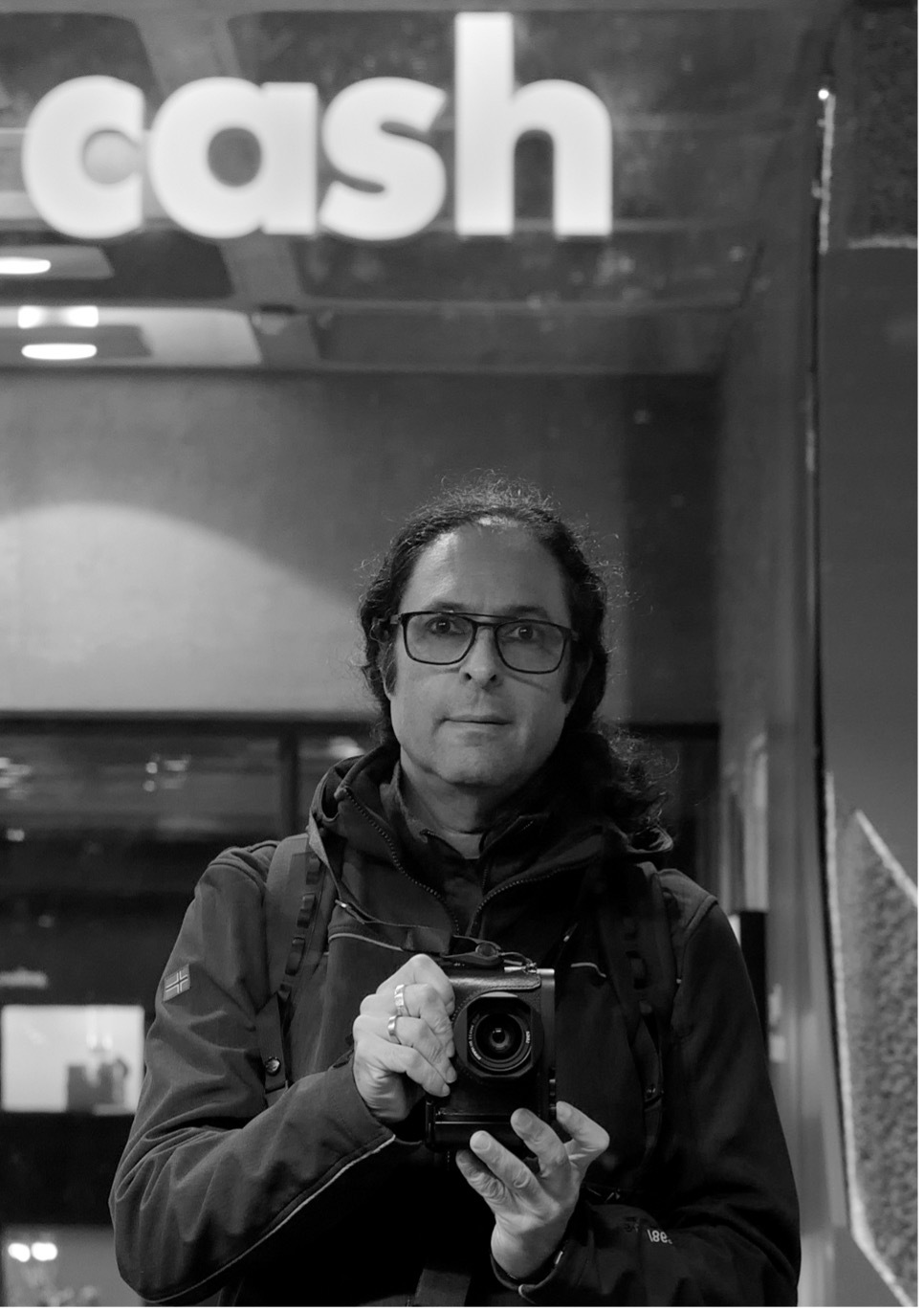
Yosi Pozeilov
Managing Photographer and Imaging Specialist
Los Angeles County Museum of Art (LACMA)
Yosi Pozeilov, currently the Managing Photographer and Imaging Specialist, joined the Los Angeles County Museum of Art (LACMA), Conservation Center in 2003. He has been performing all the technical and scientific imaging for the Conservation Center, establishing new and updating digital imaging processes. Yosi has been implementing computational imaging techniques as well, like Reflectance Transformation Imaging (RTI), photogrammetry and spectral imaging. He also established protocols to streamline condition reporting with the use of mobile technology and imaging-based systems on tablets.
-
Register
- Non-member - $96
- Member - $80
- More Information
-
Contains 1 Component(s) Recorded On: 07/19/2024
Join Kathy Gillis to hear about various case studies in wooden artifact conservation.
Join the Wooden Artifacts Group for an insightful lunchtime webinar with Winterthur senior furniture conservator and WUDPAC professor, Kathy Gillis, as she delves into the fundamentals of furniture conservation.
This session will discuss basic treatments tailored for pre-program or early career professionals, while also welcoming established professionals seeking a review of the basics! Discover practical techniques, key principles, and insider tips crucial for preserving historic furniture. Whether you're just starting your journey in conservation or seeking to deepen your knowledge and refine your skills, Kathy's expertise promises to equip you with invaluable insights. Don't miss this opportunity to enhance your understanding of furniture conservation in this engaging online session!
This session is free for WAG and AIC members and $10 for non AIC members. The webinar will be recorded and available for later viewing for registered attendants.
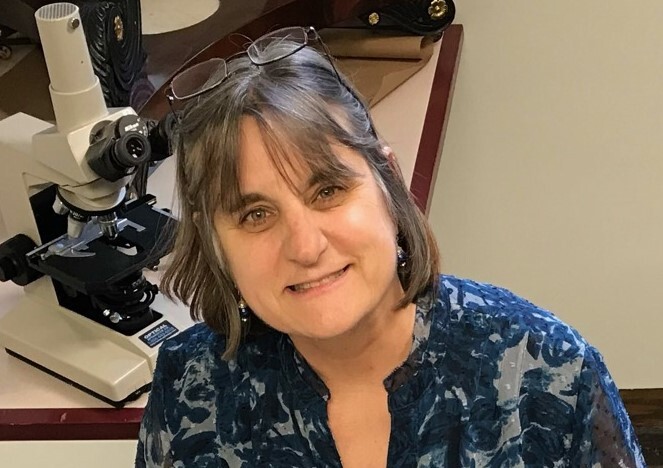
Kathy Z. Gillis
Elizabeth Terry Seaks Senior Conservator of Furniture
Winterthur Museum, Gardens and Library
Kathy Z. Gillis Is currently the Elizabeth Terry Seaks Senior Conservator of Furniture at Winterthur Museum, Gardens and Library. Kathy is a graduate of the Winterthur/University of Delaware Program in Art Conservation (Class of 1993) with a specialty in Furniture Conservation.
Throughout her career she has held internships and positions at The Fine Arts Museums of San Francisco, Colonial Williamsburg, the J. Paul Getty Museum, The Oakland Museum of California, The Virginia Museum of Fine Arts, and the Asian Art Museum, San Francisco.
She has been active in the Wooden Artifacts Group (WAG) of AIC since 1992, serving as Program Chair, Specialty Group Chair, and Secretary/Treasurer over the years. One of her proudest accomplishments has been assisting in the organization of WAG's two Furniture in France Study Tours and the follow-up French-American Partnership.
-
Register
- Non-member - $10
- Member - Free!
- *Further discounts may apply once you log in.
- More Information
-
Register


